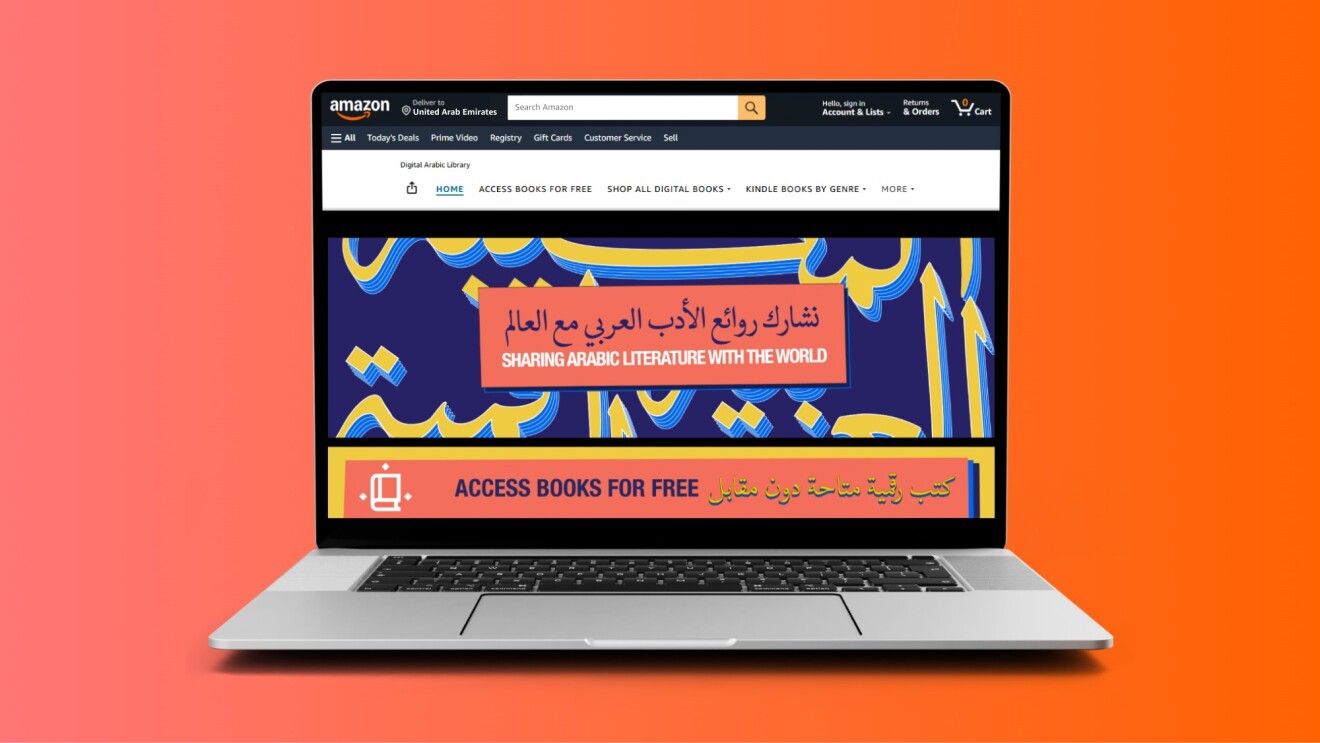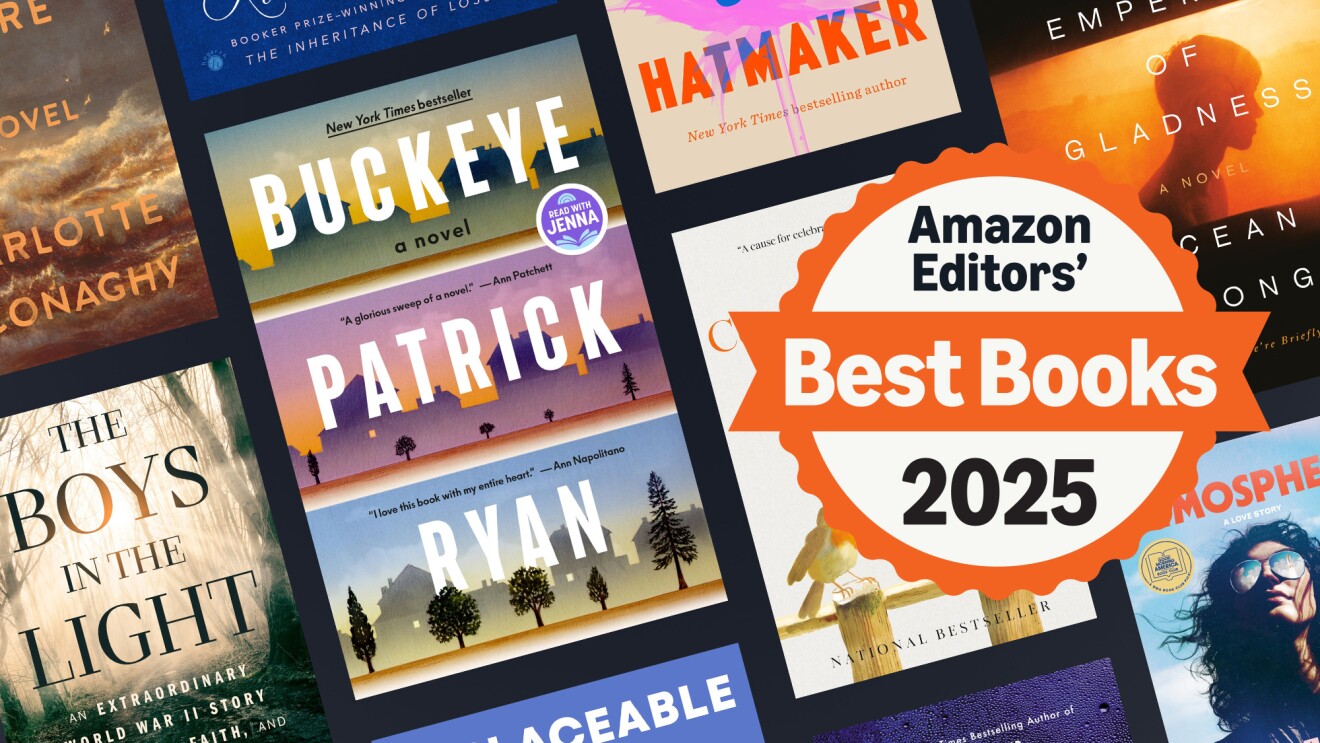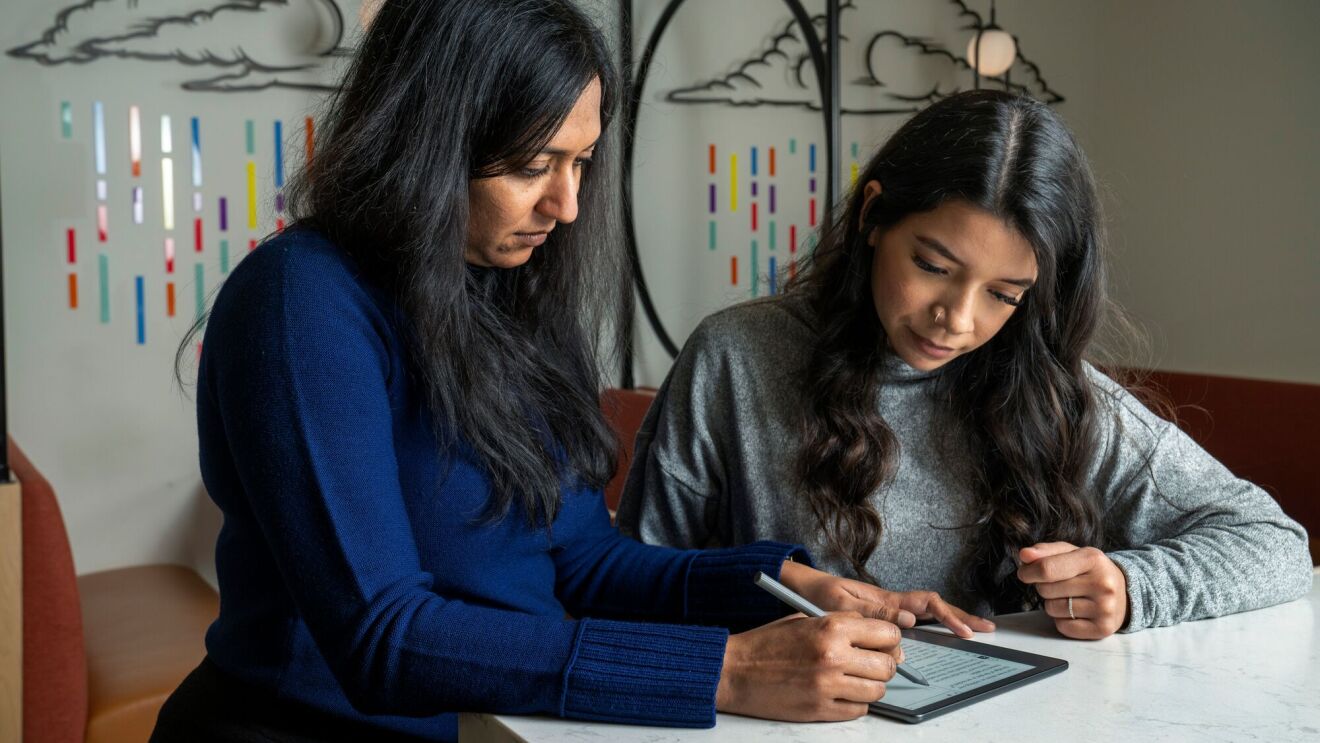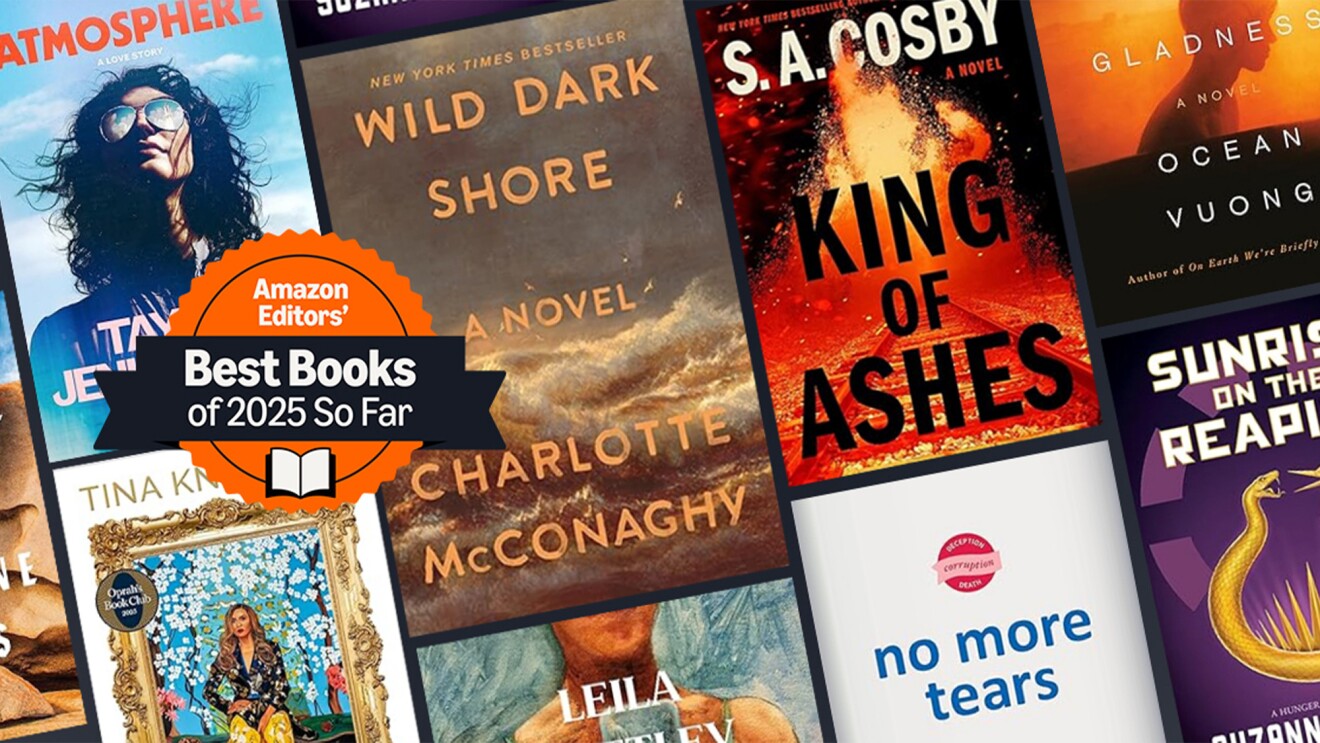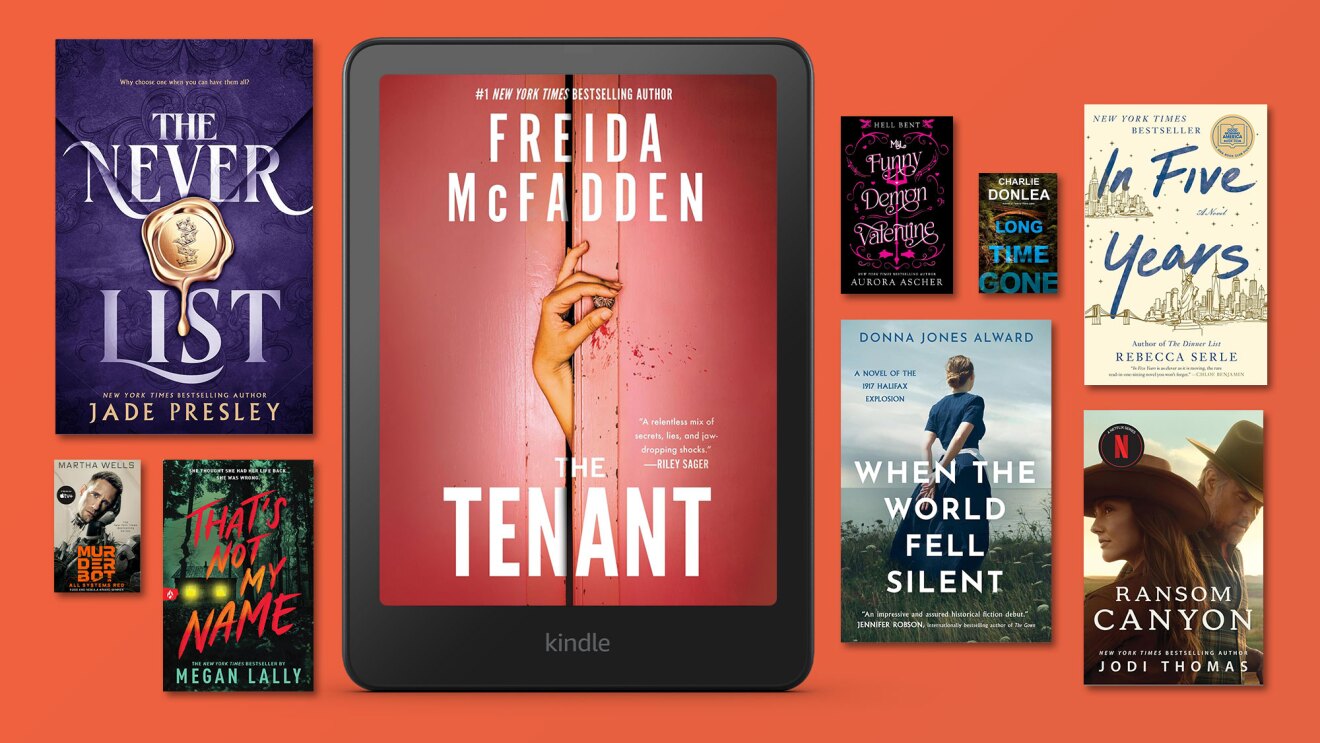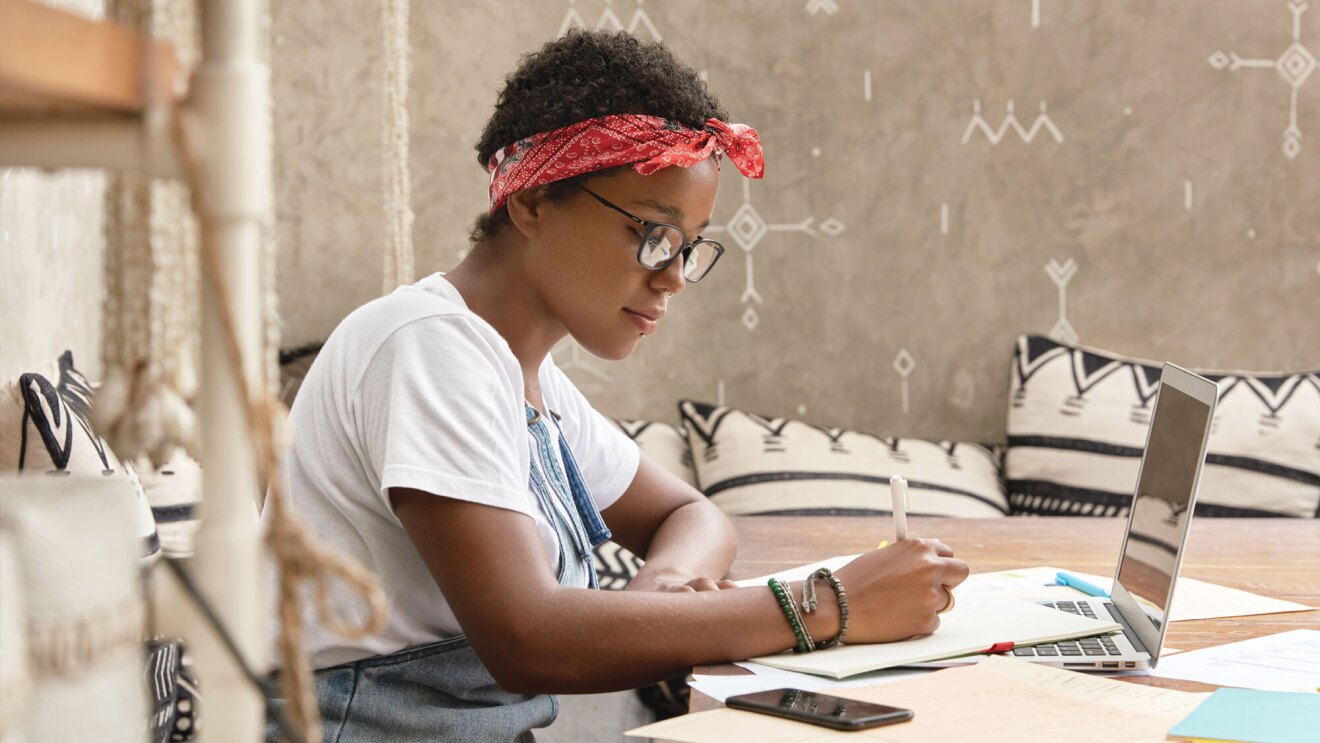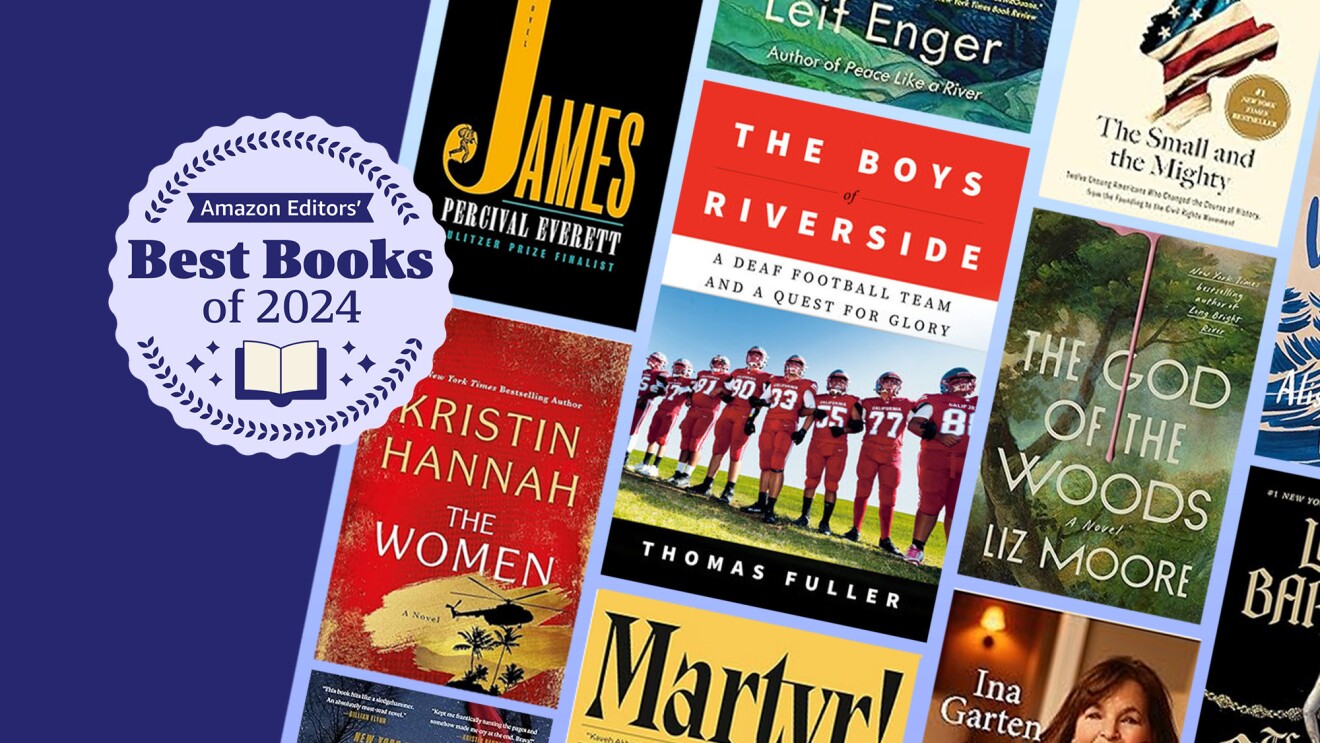"I didn't have any idea. It makes my day to hear it," says award-winning novelist Nnedi Okorafor. She's just learned that a kid's book she wrote is a big hit with schoolchildren in Africa. Last year Nnedi donated The Girl with the Magic Hands to Worldreader, a non-profit that loads whole libraries onto Kindles and gives them to thousands of kids in some of the world's poorest places.
An average of 2,000 Worldreader students per month are flocking to Nnedi's story about a downtrodden girl who discovers a magical talent for drawing. The girl uses her gift to embrace life, connect with others, and make much-needed money for her family.
I always imagine writing a story for them that is so intoxicating that they would avoid their chores and go hide in a corner to read it.
Nnedi Okorafor
It's a story that touched Worldreader participant Fredrica Ansah Gyau, a 12-year-old student in Ghana who shares a one-room apartment with her mother, grandmother, uncle, aunt, and eight cousins. "My favorite part is chapter four when Chidera became famous and people asked her to draw on their hands," Fredrica says. "I love that part because she did not keep her talent all to herself. She had her friends benefit from it, even though some were mean to her. She has a very good heart, and I want to be like her." When Fredrica grows up, she wants to use her talents to become a CNN newscaster.
Nnedi wrote The Girl with the Magic Hands precisely to fuel the dreams of kids like Fredrica. "Imagination is where ideas come from. Thinking and playing," Nnedi says. By reading books that use fantasy to soar beyond what's possible in everyday life, a child "will grow up to be able to consider different angles and points of view and imagine the impossible and make that impossible come true."
Giving kids access to the kinds of books that help foster their imagination and spark a love for reading is a big part of Worldreader's mission. "People have been shipping books for years to the developing world," says Worldreader founder David Risher. "But they're not the books that kids want necessarily; they're the books that someone else has too many of." So an African classroom can end up with ten copies of The History of Utah or a set of encyclopedias from 1972. "Kids want to read new books, they want to read local books, they want to read books about their lives or about their friends," David says. Kindles provide a new way to get these kinds of books into kids' hands, instantly.
Worldreader has digitized more than 1,700 African books and signed agreements with various sub-Saharan publishers. Most of the books Worldreader distributes are by African authors.
Nnedi's The Girl with the Magic Hands is a bit of an exception. Nnedi was born in Cincinnati and grew up near Chicago, but her parents' homeland of Nigeria is the inspiration for her fiction. And, though fellow Americans have always accounted for most of her book sales, she writes her stories hoping they'll reach the girls and women she's met on a lifetime of trips to Africa. "I always imagine writing a story for them that is so intoxicating that they would avoid their chores and go hide in a corner to read it."
Thirteen-year-old Jessica Vondoli, another young student from Ghana, is a real-life version of Nnedi's dream reader. In the evenings, after everyone's chores are done, Jessica uses her Worldreader Kindle to read to her sister and two brothers. Jessica says she likes The Girl with the Magic Hands because it's fascinating and magical, and it shows that "you will never know where your blessings will come from."
Worldreader has brought over 1 million e-books to more than 13,000 children in Ghana, Kenya, Uganda, Rwanda, Tanzania, South Africa, Zambia, Zimbabwe, and Malawi. They are working with publishers and companies like Amazon, who donated the initial Kindles and provides free cloud computing from Amazon Web Services. About 200,000 people are reading Worldreader books on cell phones.


